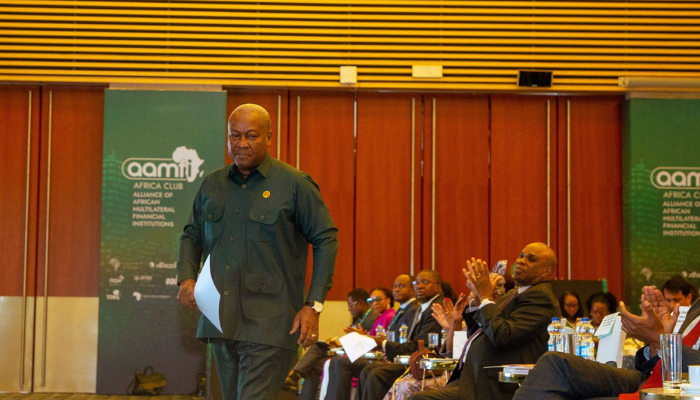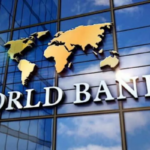President John Dramani Mahama has urged African nations to enhance domestic resource mobilisation to reduce reliance on external funding and foster sustainable economic growth. He made this call at the “Heads of State and Government Breakfast Dialogue” during the African Union (AU) Summit.
Mahama highlighted Africa’s economic resilience despite challenges, forecasting a growth recovery of 3.7 per cent in 2024 and 4.03 per cent in 2025.
“This optimistic outlook underscores the robust nature of our economies and the success of our policy interventions,” said President Mahama, the AU’s Champion for Financial Institutions. The dialogue, held under the theme “Africa at the Forefront: Mobilising African Investment and Financing for Implementing Agenda 2063,” brought together key stakeholders in the financial sector.
Read also: Africa CDC allocates $1.6m to nine NPHIs as centres of excellence
Key figures in attendance
The event, organised in partnership with the Alliance of African Multilateral Financing Institutions (AAMFI), known as the African Club, gathered high-ranking officials from various multilateral organisations.
Notable attendees included Professor Benedict Oramah, Chairperson of AAMFI and President of Afreximbank; Dr Ngozi Okonjo-Iweala, Director General of the World Trade Organization (WTO); and Dr Donald Kaberuka, AU High Representative for Financing of the Union and the Peace Fund.
Challenges in economic growth
Despite the encouraging economic projections, Mahama cautioned that Africa faces significant hurdles. He pointed out that economic growth has not consistently translated into improved per capita incomes.
“While we see positive trends, we must acknowledge that our growth hasn’t consistently translated into improved per capita incomes. Structural transformation remains uneven, with many economies reliant on low-productivity sectors,” he said.
Mahama underscored the urgency of addressing a financing gap estimated at $402 billion annually until 2030.
“This gap is more than just a figure; it signifies the unrealised aspirations of countless Africans whose hopes for a better future hinge on our capacity to invest wisely in crucial areas like infrastructure, education, technology, and health.”
Read also: Uganda’s $1.14 billion coffee industry, opposition calls for funding halt
Proposed strategies for bridging the gap
Mahama outlined a strategy to close the financing gap through strengthening domestic resource mobilisation, improving tax administration, and reducing illicit financial flows. He also emphasised the role of African multilateral financial institutions in advancing Agenda 2063.
“The establishment of institutions like the African Central Bank, African Investment Bank, African Monetary Fund, and the Pan African Stock Exchange is crucial for fostering necessary investments,” he stated.
He called for the swift implementation of these institutions to leverage Africa’s collective strengths in addressing financing and investment shortfalls.
Call for sustainable investment practices
Mahama highlighted additional challenges, including climate change, geopolitical tensions, and potential disruptions from diseases and pandemics. He stressed the importance of strategic investments in key sectors to build resilience against these threats.
Dr Ngozi Okonjo-Iweala echoed his concerns, urging African leaders to limit borrowing and explore alternative financing solutions.
“We need to capitalise on investments flowing into Africa and ensure their sustainability for our development,” she said. She suggested enhancing value addition to natural resources and leveraging pension funds to generate long-term capital.
Read also: IFC invests $50m in Lagos Free zone to boost industrial growth
High-level panel discussion on financing agenda 2063
The dialogue also featured a panel discussion on mobilising African finance to achieve Agenda 2063. The discussion reinforced the commitment to sustainable economic development, with a focus on practical strategies to enhance Africa’s financial independence.
Mahama concluded by emphasising the need for a unified approach to investment and financial reform, stating that a prosperous and peaceful Africa is achievable through strategic mobilisation of resources and structural improvements in financial systems.










